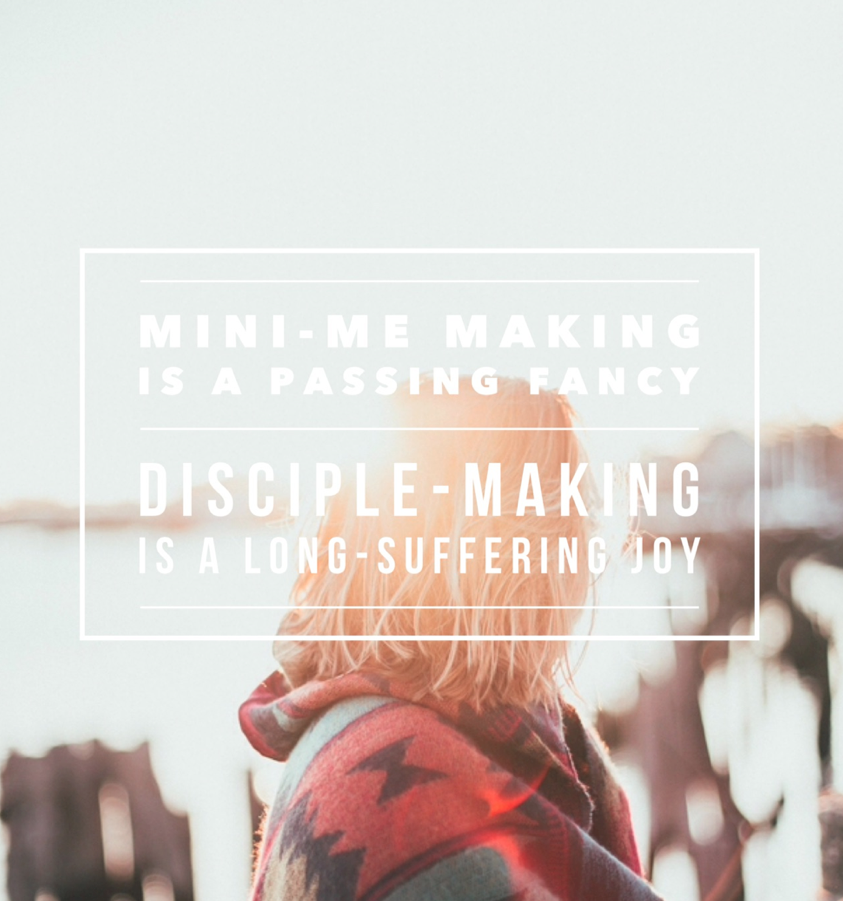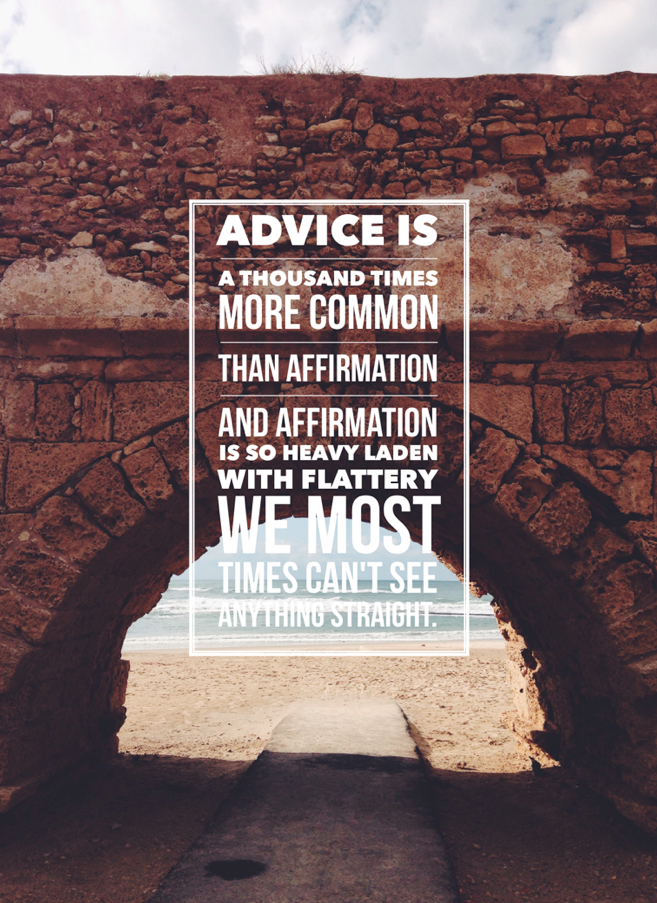Leaving and Cleaving to the Local Church
 I never thought I'd be the girl without a family, the willingly orphaned. We left Texas in tears, reading our congratulatory wedding cards on the drive to Colorado through weeping and intermittent sobbing. By we, I mean me.
I love my church family in Texas, never have I left a place looking behind me as I did there; pioneering is in my blood, forging ahead, new, change, adventure. By the time we came to the end of our time in Denver, our first year of marriage was forged in the fire of unemployment, miscarriages, violence, financial loss, and a church leadership crisis. There was no one reason that pressed us out, but the compilation all the reasons made it easier to leave. We looked eastward and hoped for home.
I never thought I'd be the girl without a family, the willingly orphaned. We left Texas in tears, reading our congratulatory wedding cards on the drive to Colorado through weeping and intermittent sobbing. By we, I mean me.
I love my church family in Texas, never have I left a place looking behind me as I did there; pioneering is in my blood, forging ahead, new, change, adventure. By the time we came to the end of our time in Denver, our first year of marriage was forged in the fire of unemployment, miscarriages, violence, financial loss, and a church leadership crisis. There was no one reason that pressed us out, but the compilation all the reasons made it easier to leave. We looked eastward and hoped for home.
. . .
When I first signed the membership covenant at my church in Texas six years ago, I did it with a confident flourish. My life had been changed there, my understanding of God rocked, settled, firmed, and set to rest. I would have signed my name in blood if it were an option. This was how committed I was to seeing my family thrive there. Years of struggle, walking through imperfect discipline with imperfect people, rubbing up against imperfect leadership and failure to do things the way I envisioned didn't change my commitment though. Every year, when the time to renew came, I signed the document with joy and confidence. This was my family and family will always fail you, but you don't back away, you press in. I was the church membership girl, her biggest evangelist.
When we arrived in Denver I asked about signing something, a promise, a covenant to this new body, but I was co-opted in, it seems, by virtue of being employed there. It never felt right with me, but nothing in my life felt right then, everything was new and different and I didn't know which things were wrong and which were just new. When the email came from my Texas family a few months after we left, telling members it was time to renew, it broke my heart to archive it knowing I was saying "No" to them and still didn't feel like I was saying "Yes" to anything else yet.
Augustine said, "Our hearts are restless until they find their rest in Him," but sometimes that rest comes through commitment to a people and a place, and sometimes it takes a long time to get there.
. . .
Before I got married I would encourage my single friends to not view the church as some sort of social gathering or authority setting, but instead to view it as family, through and through. I believed strongly then (and still believe it for my friends) that if God had marriage for me, then it would come through the family of my church. This was an unpopular view, but I held to it without wavering.
Then, one day, in the foyer of my family's home, with our family milling around us, I met him. It was without incident, without much notice, without care. I noted his beard. He noted my recent travel overseas. We shared a few words of conversation not knowing that less than six months later we'd be sharing everything with one another. I didn't know it, but there, on the threshold of my family's home, I crossed the threshold of my married home.
. . .
We have been in D.C. now for seven months. We live in a neighboring city twenty miles as the crow flies from Capitol Hill. But for the same reason I swore I would never live here, it takes Nate a generous average of three hours a day in travel to go to and from work in the city each day. That travel time is the same reason it has taken us nearly seven months to settle on a church home, and it was not the church home we envisioned when we moved here.
We moved here broken, hurting, limping. We felt the weight of failure in every direction: our ability to hold a job, keep a job, love the church, carry a baby, feel safe, pay our mortgage, and more. No illusion of comfort was kept. We felt the fracture down to our core in a way neither of us had ever felt before. Some thought we were pining for what one pastor called, "Our hot ex-girlfriend" of a church, the thriving family we had in Texas, but the thought of comparing my family to a hot ex-girlfriend, a once and done, a flavor of the week is abhorrent to me. She was my family—still is my family, if we believe there is something spiritual about the church covenant (and I do). But that actually wasn't even what we longed for at all.
We wanted a quiet place, a family that had been pastored for 30 years by the same man who didn't use social media and who didn't care about who you knew; a place that was elder-led by an equality of elders. A still and small place, a local place, a place where we could mourn and not be judged, a place where we could weep in the back row and not be rushed to counseling or medication or quick fixes, a place where we could just say, "Hey, we're broken right now and just want a family." But we couldn't find that place and the searching grew wearisome, week after week our search taking us farther from our local village. Finally we heard about a church that would be planted in the fall and we came to know the pastor and his family. We decided that if what we wanted wasn't possible, maybe God could use us in their lives and them in ours as long as he had us here, while we made plans to relocate to a smaller city. Their friendship is a sweet one, and a needed one. He is pastoral and gentle and vulnerable and fun. She is strong and wise and kind and a friend. We love and are loved by their children. It was not the family we envisioned, but it was the family God set us in for the time we're here. The church is a month old this week.
. . .
I was telling a friend the other day that in all my years of singleness I never once felt my lack of a husband the way I have felt my lack of a church family this year. I wish I could somehow communicate this to my yet unmarried friends—the longing for a nuclear family is not wrong, and there is something beautiful and dear and illustrative of God's family in a nuclear family, but your church family is—I promise you this—a more lasting and better family than the one you envision or the one you have.
I thought I understood this before, but I have really come to understand it this year. I love my husband and would not trade him for anything on earth, he is a gift to me brought in God's time and God's way. But I ache for my church family in a way I never ached for a husband before I knew God would bring me Nate. God does not promise earthly marriage to us, but He does promise family to us, and the Church itself is God's promise of marriage and a family. It is the promise that Christ is coming again to bring His bride home. It is the promise that He is making all things new. It is the promise that on earth we are spotted and blemished and imperfect and terrible at so many things, but He is washing us with the water of the Word and He is coming to perfect us with His presence.
Friends, there are a thousand difficult things about finding a local church, compounded when you're married and you need to agree on those things with your spouse, but as imperfect as she is, and incomplete as she feels, she is God's design for covenant on earth. She is the opportunity to practice what God has made perfect in the new kingdom and new earth. I am still struggling with this reality in ways I haven't in years. Last night Nate and I talked long while the candles burned low, about the ins and outs of church membership and church membership here and there and what God has taught us and is still teaching us and it was good, but hard, but good.
Something that is true of marriage that is also true of life in the Bride of Christ on earth: disagreement about next steps or future living or big decisions don't have to mean division, they just mean you talk a little more, listen a little more, ask more questions, pray more, seek understanding more than you seek to be understood. The church is like any other family in that way: work, but oh what a good work.












